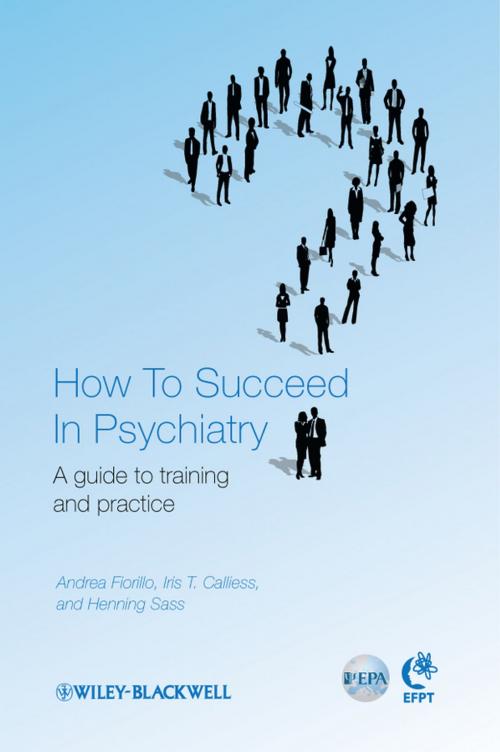How to Succeed in Psychiatry
A Guide to Training and Practice
Nonfiction, Health & Well Being, Medical, Specialties, Psychiatry| Author: | ISBN: | 9781119961949 | |
| Publisher: | Wiley | Publication: | January 30, 2012 |
| Imprint: | Wiley-Blackwell | Language: | English |
| Author: | |
| ISBN: | 9781119961949 |
| Publisher: | Wiley |
| Publication: | January 30, 2012 |
| Imprint: | Wiley-Blackwell |
| Language: | English |
Aimed at recently qualified psychiatrists or those looking to qualify soon, How to Succeed in Psychiatry is not a source of clinical information but a survival guide to help you through the first years practising psychiatry. This book covers the topics you won’t find in standard textbooks. It deals with daily problems and practical solutions for young psychiatrists. Psychiatric training is less team based than other specialties, so there is less opportunity for learning from colleagues than one would expect: this book helps to fill that gap.
The book opens with an overview of psychiatry training, describing the similarities and differences among various countries. Subsequent chapters address the opportunities for research and how to publish the results. Psychotherapy and community psychiatry each merit their own chapter on training.
Next, the book guides you through the transition phase into a job, discussing opportunities in both the public and private sectors and considering how to choose the best career for you. It reviews important general considerations, such as ethics, professionalism, leadership and management, how to avoid stress and burn out, and how to liaise with other specialties. The book closes with an account of the role of psychiatry associations and continuing professional development.
Written by early career psychiatrists from around the world, this book provides invaluable first-hand experience to all those wishing to embark on a career in this exciting discipline.
- Practical tips for young psychiatrists starting their careers on the wards or in private practice
- Advice on the transition phase at the end of training, career choice and job opportunities
Aimed at recently qualified psychiatrists or those looking to qualify soon, How to Succeed in Psychiatry is not a source of clinical information but a survival guide to help you through the first years practising psychiatry. This book covers the topics you won’t find in standard textbooks. It deals with daily problems and practical solutions for young psychiatrists. Psychiatric training is less team based than other specialties, so there is less opportunity for learning from colleagues than one would expect: this book helps to fill that gap.
The book opens with an overview of psychiatry training, describing the similarities and differences among various countries. Subsequent chapters address the opportunities for research and how to publish the results. Psychotherapy and community psychiatry each merit their own chapter on training.
Next, the book guides you through the transition phase into a job, discussing opportunities in both the public and private sectors and considering how to choose the best career for you. It reviews important general considerations, such as ethics, professionalism, leadership and management, how to avoid stress and burn out, and how to liaise with other specialties. The book closes with an account of the role of psychiatry associations and continuing professional development.
Written by early career psychiatrists from around the world, this book provides invaluable first-hand experience to all those wishing to embark on a career in this exciting discipline.
- Practical tips for young psychiatrists starting their careers on the wards or in private practice
- Advice on the transition phase at the end of training, career choice and job opportunities















